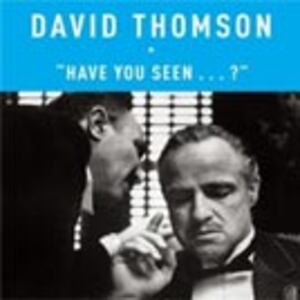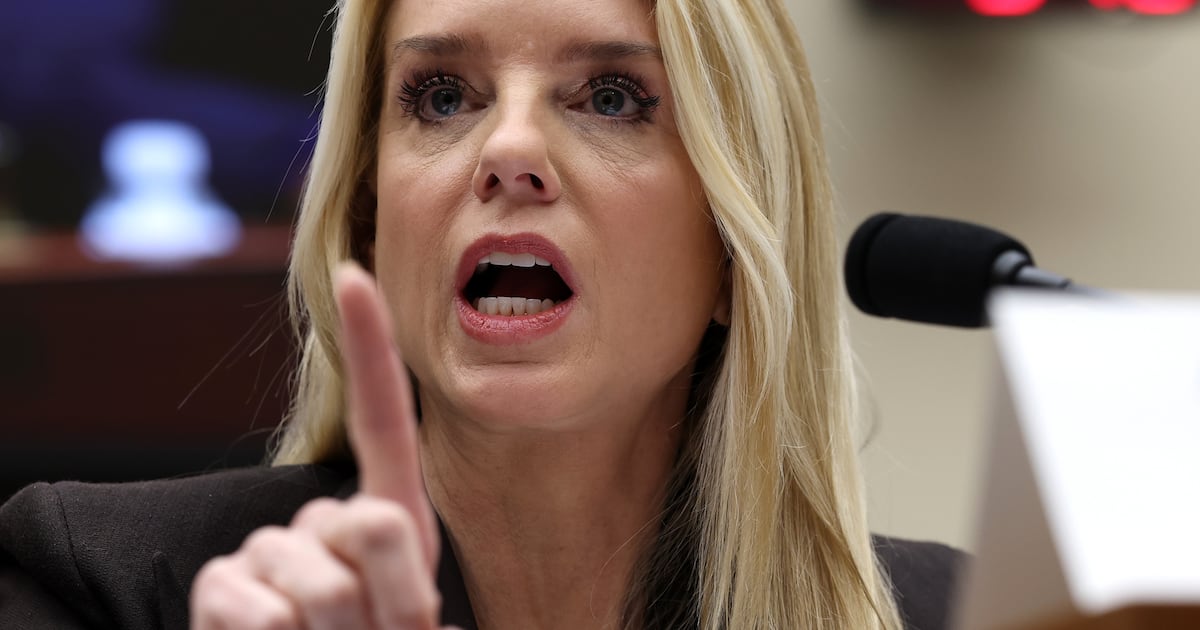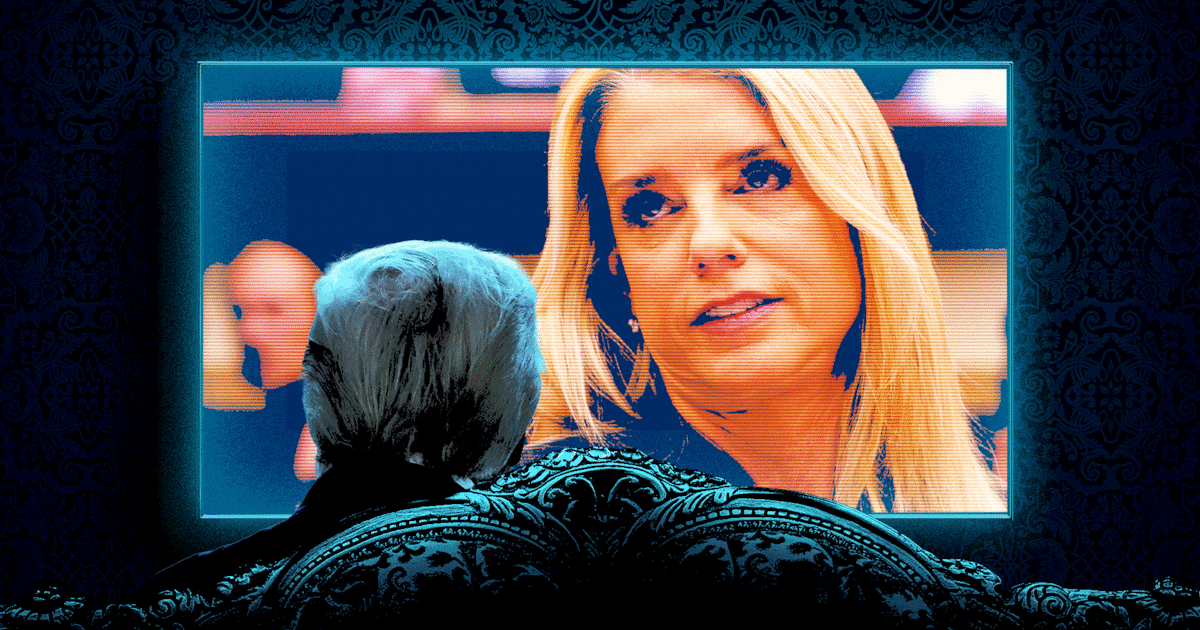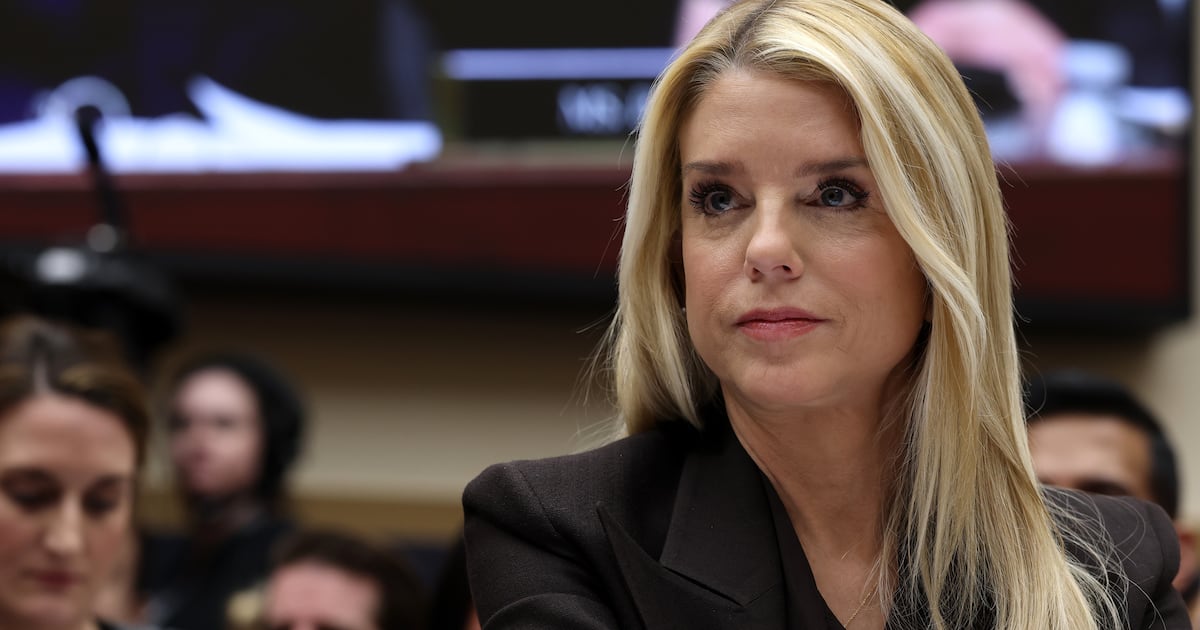Long before the 2016 election, I remember when some unintentionally irritating people said they were curious to see what a President Trump would actually be like. We all sure found out, and I sincerely hope that the reality of Trump’s administration was significantly less entertaining than a media-besotted public assumed it would be. But given how enthusiastic some still are about him, it’s safe to say that millions are still addicted to the drama. Maybe we’ve become inured, if not entertained, by the possibility of disaster, mesmerized by the mysterious allure of our own undoing.
Film critic David Thomson has always been fascinated by the psychological ambiguities of seeing, especially alone amid a crowd in the dark, and he never ignores the ways in which the movies influence our consciousness, for good or ill. After excitedly rewatching Fritz Lang’s mighty Metropolis, he made sure to remind the reader that when the film first appeared on German screens, Hitler and Goebbels were darkly intrigued by its epic spectacle, too.
So it’s only natural that a film scholar would have much to say about the nature of disasters and why we are so captivated by them, provided of course that they are happening to someone else. His new book Disaster Mon Amour is a unique and almost unclassifiable work combining elements of movie criticism, social commentary, personal reflection, and sometimes veers into semi-surreal metaphors for the persistence of the human experience.
In the most moving section of the book, Thomson and his adult son visit the site of the 1966 Aberfan coal mine disaster in South Wales. A tip of coal waste slid downhill and smothered over a hundred schoolchildren and adults in horrid sludge. “The regulations of the National Coal Board required that such tips be no higher than twenty feet,” Thomson writes. “But throughout the coal field that advice was ignored… it had been growing on the skyline for years, the way so many threats build.” Thomson is quietly outraged at the evasiveness of the response to a tragedy that isn’t widely remembered many years later.
“You know the uneasiness now in opening up the paper—you know there is a war going on in which most of us are clenched against the anxiety and fatigue of being alive.” Isn’t it funny how time-saving technologies and modern conveniences have ironically made us more anxious, bored, distracted, and more filled with dread at the fresh news of something horrible happening somewhere else? Maybe we rubberneck over disasters because we are bored by our relatively cushy safety. Or maybe we can’t avoid the threats as they creep up on us, which only encourages more distraction. Despite its subject matter, Disaster Mon Amour isn’t entirely hopeless, which would be understandable given the gloomy subject matter. It’s more of a tone poem, a meditation on what we think about when we think about disasters, how they always seem to be happening to someone else, until they aren’t.
The Daily Beast talked to Thomson via Zoom from his home in San Francisco about watching movies about earthquakes while living on a fault line, why our culture loves to gaze at disasters from the safety of the dark, what films like Nicholas Roeg’s Don’t Look Now and novels like Cormac McCarthy’s The Road have to tell us about the emotional fallout of disaster, whether or not a picture is truly worth a thousand words, and why people still fall in love with a walking disaster like Donald Trump.
What got you thinking about the nature of disasters? And the way that we process disasters?
I think what really started it for me was watching San Andreas in a packed theater in San Francisco, where the movie was showing in extraordinary CGI detail. Showing the destruction of the city where the theater was, where we were seeing it. And the audience were delighted, enthusiastic, and gleeful. There was a certain kind of pride, almost, that their city could have such a glamorous disaster. Geographically, San Francisco is pretty well cut out for it.
The audience was having a ball with the film, and yet everybody in that theater knew, as everybody living here knows, the big one—a major tremor—could come at any time. And you know, this was many years after the 1989 earthquake. But still a lot of people who were in the theater for that tremor, and they remember. And that was a smaller tremor than the one that was talked about in the film.
I just felt there was an extraordinary disconnect between the story, the fantasy, and the reality. And it sort of set me thinking, everything I’d known in my life, practically: how we dread disaster. At the moment there is the disaster in Ukraine, which is very hard to look at every day. I think the public has got a tremendous appetite for disaster.
Maybe it’s about enjoying something from a safe distance. You wouldn’t want it to happen in real life, but it might be a thrill to gaze at from the safety of a theater or a couch.
Sure, you can say, well, people can compartmentalize. But the two ends do meet if you look at it carefully—people love disaster as long as its happening to someone else. The reasons for that I think are very complicated. But that was the triggering moment.
The movie came out in 2015, and so of course I had no idea that when I finally wrote it there would be another quite different disaster, COVID. And then there’s the other disaster that seems to keep building and growing and intensifying every year: climate change. And the thing that sort of startled me a little bit was that this very ominous and tragic subject, it contains a weird kind of comedy. San Andreas was a huge hit, and disaster movies are a very viable genre.
I’ve heard people point out that when people think about disasters, be they climate or political or whatever, they don’t really know what to do about it, and so people just kind of shrug it off. And yet so many of the most popular movies of the last thirty years, movies like Titanic, Armageddon, Independence Day, and so on, like you’re saying with San Andreas, have been about disasters. So maybe unconsciously people really are acknowledging how dangerous things have become. Which begs the question: Are people going to the movies, or more broadly to TV, in order to think through the problems that they are afraid to confront?
I’m sure they are. I think you have to face the fact that what we’re talking about is really a metaphor for our own death. We are, as you can understand, fascinated by our own deaths. We know intellectually that we’re going to die, we know that everyone so far has died, we’re afraid of it, we’re awed by it, and yet we’re sort of fascinated by it.
If I was a genie and I could say, hey Matt, I can show you the moment of your death, would you be up for seeing it?
I think so. It’s a little nerve-wracking to think about, but yeah, I think I would. At least, eventually.
It’s an extraordinary question. In a way—and you’re much younger than I am—you think about your death all the time. It’s always there. And it shapes a lot of what you do. You’d be horrified to look at it. And yet, I have a hunch that while you’d refuse it initially, you’d go away and you’d think about it and you might call me later and say, could you really show me that?
There’s an incredible fascination to it. I do think the thing we call disaster as a genre is about very, very mixed feelings that we have that we’re going to have to die. And one of the things I do in the book is ask, do you realize how long the Earth has been going on without you? What it comes down to is, how significant are we? I think that the cult of disaster, I mean the way people think about this genre, it gets at this very complicated, mixed feeling we have about mortality.
I remember the Cuban Missile Crisis of 1962, when I was a boy. That was a truly terrifying event. And it strikes me now that there is a real prospect of someone accidentally letting off a bomb, people are kind of blasé about it.
There is simply not the level of anxiety that there was in 1962, and that tells you something very frightening about us and we have to come to terms with these things. And I really believe this, that deep down in the most intelligent people on earth now, there is a realization that we are coming to an end, the culture of human beings on earth, is coming to an end, and there’s nothing we can do about it. Maybe the people who understand climate change better than I do, better than anyone does, they don’t advertise this, but I think they’d tell you, that the process has been set in motion that will end a huge amount of life on earth, and there’s nothing that can be done about it.

And therefore, whatever we may say, actually we know it can’t work. And I think most of us have made a kind of private deal where we say, well, I guess I’ll just make the best of it that I can while you’re alive. It gets very strained thinking that way when you have children and grandchildren and you have the parental impulse to take care of people, when you ultimately can’t take care of people.
I think we are a race nearing our own extinction. And then I remember that the earth has gone extinct over and over again. And if every human being is gone, If you gave it long enough, some form of life would eventually come back. And that’s no comfort but it is a perspective to maybe not take ourselves so seriously. We honor our own lives, and we expect that others to honor ours. But we can’t forget for a minute that we are insignificant.
Let me bring it back to films. The book isn’t really film crit, or history, it’s a little bit of everything. You’re talking about the Aberfan disaster in Wales. The Nicholas Roeg film Don’t Look Now is significant in the book, and you talk about Cormac McCarthy’s novel The Road quite a bit.
I think I knew early on that I wanted to compare the Laurel and Hardy film The Music Box, where they’re trying to get the piano up those stairs, with the Odessa steps sequence in Battleship Potemkin. I wanted to get at the quality of danger when you’re on a staircase.
I like Don’t Look Now, think it’s a very strange film. This happily married couple, Julie Christie and Donald Sutherland, have two children. And one afternoon, after lunch, the parents are sort of half-asleep, one daughter drowns in a pond. This is a traumatic event, obviously, but the film doesn’t really explain things adequately. The more I watched it, the more I thought that there was a suggestion that the child might have drowned while the parents are making love. It becomes a very interesting commentary about life and death, about how close together they can be. There was a strong emotional attachment to that film.
The Road is an extraordinary book, which deals with a father and a son, and they have a gun with enough bullets to take care of themselves. It sounds bleak, and in a way it’s not an irrational course of action. I think you’re going to find that people will become more greedy, opportunistic about getting their life together. And I think you’re going to see a serious conflict between the rich and the poor, because the rich are going to live longer than the poor. The reasons are obvious.
I never thought of this book as being about film really, but about disaster and what we feel about disaster. How it’s like it’s a metaphor for our own death. I would say that in general that in recent years I’ve become much less interested in writing about films in the way that a film critic or a historian might. I’m much more interested in the way that film is a general cultural expression of our fears and fantasies.
I’m interested in what films do in the minds of the people watching them. I think it’s just the way my mind works, I’m less impressed by directors now than I used to be, but I’m still very impressed by the power of the medium. I knew I’d talk about a few films, and The Road, which is a tough read, but I do recommend. The film, by illustrating what you are meant to think about, the film dilutes the power of that situation. It’s a respectable film, but it’s nothing on the book, which isn’t always true.
At one point, you write “I know the homily ‘A picture is worth a thousand words,’ and I’ve been historically attracted to the culture of the image. But I worry over all what it’s doing to us.” Say more about that.
Well, I love words because we have to choose them, read them, and think about them. I think with imagery we just too much let ourselves be subject to them. I don’t think they necessarily draw upon the full range of our capacity to think about things. There are obviously times where an image can be quicker, more potent, than a thousand words. But I don’t think we should fall into the trap of accepting that, always. I think there are a lot of very dramatic images. For instance, one that comes to mind is the famous shot of the infantryman who is being shot during the Spanish Civil War by Robert Capa.
The more you think about it, the more you realize the picture was propaganda, a fake. That it wasn’t of a real man being shot, it was of a man pretending to be shot. I think that was totally legitimate, within the range of that political situation and the need to get the word out. But you know, we know more now, we’re much more sophisticated than we were in the thirties about what goes into images. Spelling out what is happening in the picture can be much more telling than what’s in the picture itself. The picture in itself is a factor in a process of manipulation.
And it’s very important, I think, that we bear in mind now how far, let us say, to know everything that is coming out in Ukraine, is being manipulated by someone or another. It becomes very hard sometimes to say exactly what is happening. My sympathies are totally with the Ukrainians and against the Russians. But I don’t trust any government enough to know that they’re telling the truth.
They might be telling the truth that they want told. I think we have to live up to that. And that can be about spelling out and talking about the image in a way that teaches us how vulnerable we are to injury. If a picture is worth a thousand words, then there’s a kind of surrender in that. We’ll always be in awe of, bow down and worship, the picture. And I’m wary of that. Pictures can trick us, pictures can lie. We used to think that pictures were a record of reality. It’s much more complicated than that.
At another point you’re saying, “the movies had gone from a tenuous, flirty grasp on reality and humanism to the reckless lyricism of invention. Disaster became less of an interruption than a new giddy norm.”
Let’s put it like this: during the first world war, there was some—not a lot, but some—direct film coverage of the front. War is a very hard thing to photograph, and the pictures are not terribly communicative. But you believe they’re authentic. And sometimes you will see pictures of soldiers being killed. You’re not always supposed to look at things like that. But they exist and there are enough of them to trust what you’re seeing.
Nowadays, we know that computer generated imagery—and this could be in the hands of a government or a film studio—can show us what they want us to see. And I grew up in an age of film in which a direct relationship between the camera and reality was a very potent part of the experience. And I love film for that reason. External nature and human nature alike are conveyed with some honesty.
We have long since been in an age where the imagery is no longer a record of reality. It has no relationship to nature. We are, time and again, and above all in disaster films, war films, we are seeing things that have never existed. They breed in us a kind of connoisseur-like attitude. You can see young people watching disaster films, they’re not interested in the people, not in the battle or whatever, they’re interested in the special effects.
The special effects have become the stars in a lot of movies. That’s a very dangerous process. Because that’s getting closer to that point at which we can be eternally manipulated, by other people deciding what they will show us. And we are now cut off from that feeling that we have seen the real thing. And that is undermining to a degree. I think it’s part of that general feeling that we talked about earlier, about people sort of giving up the ghost. Saying, I don’t even know what’s real anymore, much less do I have a chance to intervene in it, save us from it. So it’s a very frightening situation.
Speaking of fakes and misinformation, of course we’re all sick of talking and thinking about Donald Trump. But I guess it’s inevitable when we’re talking about disasters at this moment in time, given that he was and could very possibly be president again. At one point in the book, you describe him like this: “he improvises, he does not like to read scripts… he is an actor who must transcend what the playwright wrote.” I think this is a big part of his appeal, refusing to read scripts, even after a tumultuous four years, people still respond to that.
I think he does have an incredible talent for a certain kind of—you could call it stand up comedy but it’s much more gruesome than that. He has the ability to go up in front of a crowd and do and say things that change the experience of that crowd. That has always been a measure of a certain kind of authoritarian leader. Of course, he’d be nothing without the media carrying his message.
Maybe there’s a way in which, when speaking, he needs to obliterate the entire past political history and discourse. He needs to give us, or his followers, the feeling that he’s reinventing everything. And he will do it endlessly, with no consistency, because he will say whatever works at that moment. He’s like a standup comic in that he judges whether or not his line will get a laugh. He’ll do anything for the laugh; it’s more complicated than just a laugh, it’s a kind of agreement. But he will do anything for that. That’s the entire focus of his being, and it’s entirely dangerous.
A little later you’re saying that “he had this extra menace, it is immense, a San Andreas fault that he and our system had given him a charm, so that millions of us could vote for him and hold him in some amour.” Say more about that.
We are, to put it mildly, opposed to him. And we could go on day and night about why we’re opposed to him, and we could be rational and sensible about it. But this is a man who, clearly, in a single sentence can make people fall in love with him. You can’t judge his power properly without understanding that there are people in the country who love him.
Same was true for Hitler—you and I could look at Hitler, and we could say well, the man is clearly deranged, he looks awful, he’s got no presence, no charm, but somehow enough Germans loved him. And it’s true for Donald Trump. We’ve had mass media long enough to know by now that scoundrels can make strangers fall in love with them. You’ve got to be very guarded about that.
You tend to hear slogans and arguments that are repeated all the time—drain the swamp, lock her up, and even extended arguments sometimes about whatever hot button issue is in the news.
Here’s something I’ve always wondered about: Do you think that people repeat slogans and catchphrases because they have had their heads filled up with stuff that suddenly sounds like a good idea, or do they do it because the slogans allow them to articulate something that they might already unconsciously feel?
I think there is a kind of trashy poetry in it. I mean, you take “lock her up.” I mean, lock her up was absurd, it had no legal foundation. But it spoke with raw passion to a kind of not just against Hillary, not just against Hillary but against women. It was clearly a male cry against women. It worked because of how much sexism there is still in the country.
And I think that, not always maybe, but often you can analyze these cries, these statements, in terms of how they draw upon a reservoir of resentment and ill-feeling. We live in a very unfair country. And a lot of people in this country have grown up for decades knowing that they have been treated unfairly. You can’t dismiss that and say it’s irrational. People feel like they’ve been treated unfairly, and they have been. It has to be dealt with, and there’s a political solution to it. But those cries and the way Trump speaks, people like that, they work from that.
There’s also, deep down, a lot of people—not just in America but in the world—who believe that education is unfair. It gets at the raw basic quality of being alive. It says look, there’s something more, you can be enlightened. And some people are maybe more enlightened than others, and the others feel like they’ve been treated unfairly, and there’s always going to be that force out there in society and fascists know how to get at it.
I don’t say they know how to get at it intellectually, they know how to get at it instinctively. And it’s very much a thing about being in front of an audience and I think Trump is great at it. It’s instinctive, I think. No one can write these lines for him. I don’t think he always knows what he’s going to say, but sometimes he says something that is just world-changing, and usually incredibly stupid at the same time!








